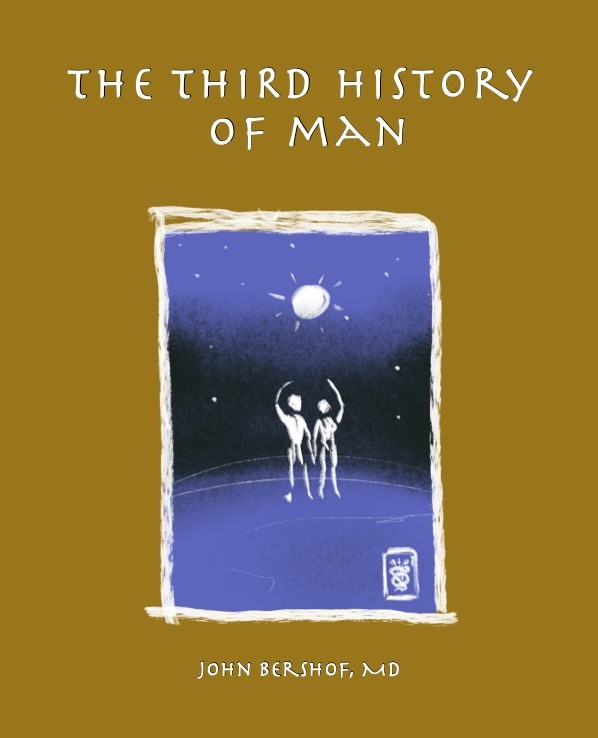
To paraphrase the great sci-fi writer Stephen King: Kill your darlings, kill your darlings, even when it breaks your heart, kill your darlings. Translation: stay on point and mercilessly avoid side stories and anecdotes. With much respect for Mr. King, The History of Man Series is precisely that, a great deal about all those little darlings, a style of writing termed “jumping off.”
The Third History of Man leaves bacteria in the rear-view mirror and jumps to viruses and viral infections, the cold, the flu and COVID-19, not just another flu. We’ll cover epidemics, pandemics, and vaccines, the pox infections, and the Spock principle that the needs of the many outweigh the needs of the few … or the one. From COVID and the rise of Zoom, we’ll venture into the rise of Homo sapiens and the fall of Neanderthals, the high sea adventures of Darwin aboard and the high sea adventures of dementia. Our travels will take us along the Silk Road and Spice Trade, another visit with the Age of Discovery when masted ships and European explorers went looking for that elusive sea route to the Far East, and looking for gold, annihilating huge swaths of indigenous Americans at every port of disembarkation, not by the pointy end of a sword, but by tiny infectious microbes. We’ll examine colonialism at its finest, the sordid European history of imperialism and the land grab into Africa and the New World Americas.
The History of Man Series is written in a jumping off style, using medicine, disease, and health themes, fleeced of the normal jargon that all too often accompanies science narratives, as the foundation to jump off into history, world history, human history, American history, ancient history, biographies, celebrities and the rich & famous, the body, aging & longevity, science, biology & nature, physics, even some math thrown in, anatomy, a travel book of geology, geography, continents, Europe, Asia, Africa, America, South America, Australia, even the North Pole & South Pole, astronomy, the Universe & cosmos, war, politics, nature, art, music, romance, folklore, religion, the Bible, mythology, sports & athletes, weather, climate change and global warming, and maybe even some non-prescriptive self-help commentaries tossed in for good measure. For the print and eBook versions, comics interspersed to add some humor. And to add yet another twist to the writing style, another layer, each book showcases some personal anecdotes Dr. Bershof experienced during his life in medicine, a few biography sketches of suspense & thrillers that reveal a glimpse how the mind of a doctor works … or doesn’t work.
We’ll cherish all the darlings we encounter on our travels as they tell the tale of the humanity that remains eternal in all of us, in all its splendor and all its tragedy. All human activity and that of the Universe lies within our scope. Unlike Bryson’s wonderful book A Shorty History of Nearly Everything, a must read, this series makes no apologies for being a tome about nearly everything.

John Bershof, MD
John Bershof, MD is a plastic surgeon who has been in private practice for over 25 years. He is the author of numerous medical articles as well as the first textbook of medicine for mobile phones, entitled skynetMD 2005-2015. An essay entitled Gin & Tonics, Clerics, and Dr. Livingstone, I Presume?, which was extracted from one of his future as yet published books was featured in The Antioch Review.
While working on the medical textbook skynetMD for mobile phones, Dr. Bershof, perhaps not too surprisingly became more interested in the backstories of medical history, like who was Lou Gehrig, what is Lou Gehrig's disease, what was his lifetime batting average for the New York Yankees—.340, nineteenth overall—and who invented baseball anyway. Questions such as these piqued Bershof's interest. Having read At Home 2010 by Bill Bryson, his engrossing narrative journeys room-by-room through his Victorian English countryside home, a former rectory, where each room is a chapter about domesticity, about home. It occurred to Dr. Bershof that in similar vein he could take the reader disease-by-disease as jumping off points into human history, science, medicine—his canvas blank, no subject not within reach—and learn a little medicine along the journey.
The ability of a book that is heavily fortified with science and history to connect with a general readership can be challenging; Dr. Bershof through storytelling, humor, jumping off points and personal anecdotes, accomplishes it, written in a language fleeced of the jargon that normally accompanies such narratives. The first two books, The First History of Man published in 2020 and The Second History of Man published in 2021 are available in print, ebook and audio. The Third History of Man is in final stages of editing to be published in 2022, with more volumes to come after that.
Enter your email address to subscribe to this blog and receive notifications of new posts by email.


